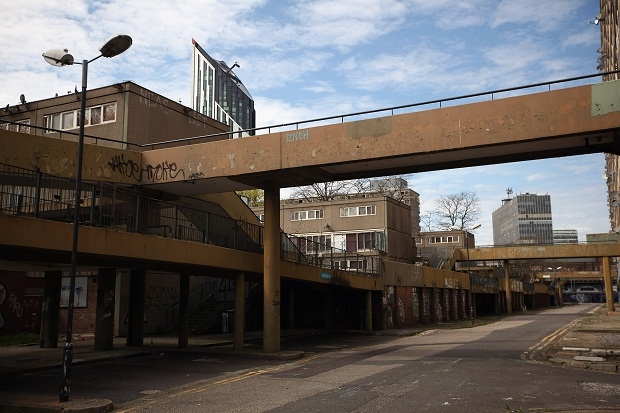With the recent anniversary of the Beveridge report, TV channels have been packed with an array of documentaries on our welfare system. Most of these have been fairly hopeless, trying to make their points with extreme cases. Channel 4’s ‘How to get a council house’ was a notable exception. With devastating clarity it showed how our social housing system is nothing of the kind.
My grandfather, an electrician, spent most of the Second World War on Malta with the RAF. His house in East London was destroyed by bombing during the war. With no home of his own he stayed with relatives when on leave and happily fell in love with my grandmother who lived next door. They married on VE day and after a few years had a daughter, my mum. In 1955 he answered an advert in the paper for a self-build group setting up in Essex. Together the group bought a potato field and over the next few years jointly built houses on the land. Giving up every weekend, evening and their precious annual leave they built thirteen sets of semi-detached houses between them which still stand today.
I don’t remember my grandfather – he died when I was two – but I imagine the kind of man he was and the discipline, care and pride that years toiling to build those houses must have instilled in him. That was genuine social housing – people playing their part, each contributing what they could and toughing it out through the days when they wanted to give up because they had made a commitment to each other.
Channel 4’s documentary showed a system that has unashamedly built the complete opposite of those things, destroying any idea of self-reliance or need for relationships.
Families were unwilling to move more than five miles away and couldn’t see why they should. The possibility of going to live with relatives for a time was viewed with horror. There was never any discussion of the responsibilities of other related parties; for example, the father of the children being raised by a single mum or the grandparents on both sides. The idea that children should have to share a room seemed to create outrage. The notion that finding work might be a good step was eschewed, with people being offered leaflets on how to try and find a job as a vague afterthought with no expectation. ‘I’ve not been too concerned about looking for a job,’ said one young dad-to-be. In the midst of the moaning about the “bedroom tax” (that isn’t a tax at all), when people were provided with houses at a fraction of their market value and therefore at great cost to the taxpayer, there was no sense of gratitude; simply a belief that it was no more than their due. The administrators of the system were simply that: form fillers.
The people in the documentary have become victims of a system that encourages them to look to the state before they look to themselves or to family, friends or their community. Unravelling a welfare system that accounts for close to 40 per cent of government spending, and rebuilding it to foster relationality rather than destroy it, is one of the most pressing challenges in public policy today.
Fulfilment and purpose is found in work. Responsibility requires that people feel there is a connection between action and consequence, and the law of delayed gratification requires that we understand sacrifice is worth it for what we get in the end. We are not islands or statistics whose unique personal circumstances and characteristics can be understood by ticking boxes on an online form.
It may not be clear what all the answers are, but the documentary clearly showed the problems. A life on benefits in state housing isn’t easy. Reforms need to be made that help people to get out of it, rather than encouraging more people to go into it.
Ruth Porter is Communications Director of the Institute of Economic Affairs






Comments